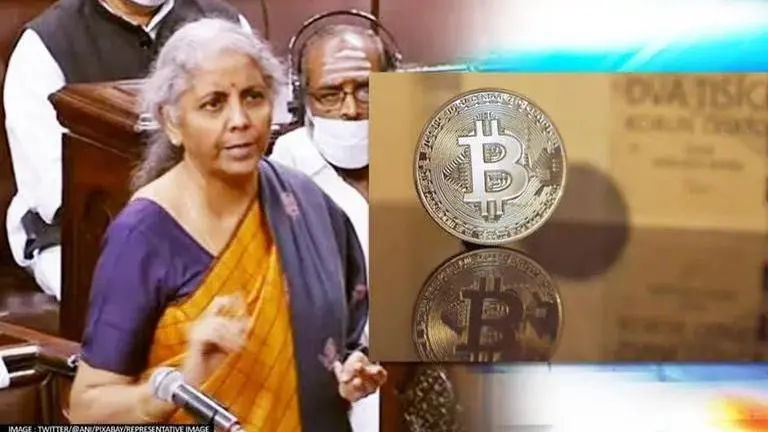Updated 25 March 2022 at 18:42 IST
Finance Bill 2022: From cryptocurrency tax to threshold limit for TDS, check key pointers
From April 1, any income from the transfer of virtual assets, like cryptocurrencies and NFTs, will attract tax at 30% plus cess and surcharges.
- India News
- 3 min read

Image: ANI/Pixabay | Image:
self
The Lok Sabha on Friday passed the Finance Bill, 2020, which gives effect to next taxation, thus completing the Budgetary exercise for 2022-23 fiscal. The Lower House of Parliament approved the Bill after accepting 39 official amendments moved by Finance Minister Nirmala Sitharaman and rejecting the amendments that the opposition proposed by voice vote.
During the discussion on the Finance Bill, the Finance Minister said that India was probably the only nation that didn't resort to the new taxes to fund economic recovery after COVID-19 Pandemic.
Finance Bill 2022: Key pointers
- In Finance Bill, 2022, the Centre has introduced a new section for taxing virtual assets. From April 1, any income from the transfer of virtual assets, like cryptocurrencies and NFTs, will attract tax at 30%.
- The Finance minister has also proposed to amend a provision to remove the word 'other' from the section relating to the set-off of losses from gains in virtual digital assets (VDA). This would mean that loss from the transfer of VDA will not be allowed to be set off against the income arising from the transfer of another VDA.
- Computing the income from transfer of VDA, no deduction in respect of any expenditure (other than the cost of acquisition) or allowance will be allowed.
- The Bill also proposed a 1% TDS on payments towards virtual currencies over Rs 10,000 in a year and taxation of such gifts in the hands of the recipient.
- The threshold limit for TDS would be Rs 50,000 a year for specified persons, which include individuals and HUFs who are needed to get their accounts audited under the Income Tax Act.
- The provisions relating to 1% TDS will be effective from July 1, 2022.
- The Finance Bill, 2022 proposes to insert section 135AA in the Customs Act which stated: "if a person publishes any information relating to the value or classification or quantity of goods entered for export from India, or import into India, or the details of the exporter or importer of such goods under this Act, unless required so to do under any law for the time being in force, he shall be punishable with imprisonment for a term which may extend to six months, or with fine which may extend to fifty thousand rupees, or with both."
- The amendments seek to do away with six-month imprisonment and the Rs 50,000 penalty.
- The amendment now reads: "if a person publishes any information, that is furnished to Customs by an exporter or importer under this Act, relating to the value or classification or quantity of goods entered for export from India, or import into India, along with the identity of the persons involved or in a manner that leads to disclosure of such identity unless required so to do under any law for the time being in force, or by specific authorisation of such exporter or importer, he shall be punishable with imprisonment".
(With PTI inputs)
Published By : Kamal Joshi
Published On: 25 March 2022 at 18:42 IST
